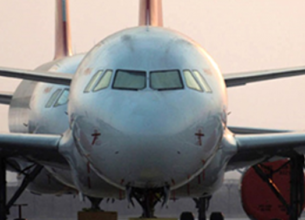THE AIRCRAFT (AMENDMENT) BILL, 2020
08, Feb 2020

Prelims level : Infrastructure Road, inland, Railway aviation, Housing, Rural & Urban
Mains level : GS-II Government policies and interventions for development in various sectors and issues arising out of their design and Implementation.
Context:
- Recently, the Union Government introduced a bill in the Lok Sabha to amend the Aircraft Act, 1934. This Act pertains to control of the manufacture, possession, use, operation, sale, import and export of aircraft.
Key facts:
- According to the proposed amendment, the fine amount for violations will be hiked from Rs 10 lakh to up to Rs 1 crore.
- The bill also provides for keeping “aircraft belonging to any armed forces of the Union, other than naval, from military or air force outside the purview” of the Aircraft Act, 1934.
- The bill proposes that, the government would also have the power to issue directions to review, if necessary in public interest, any order passed by Directorate General of Civil Aviation (DGCA), Bureau of Civil Aviation Security (BCAS) and Aircraft Accidents Investigation Bureau, as per the bill’s Statement of Objects and Reasons.
- The proposed amendments would fulfil the safety requirements of the International Civil Aviation Organisation (ICAO).
- Other proposals include empowering BCAS or any authorised officer to issue directions, having designated officers for adjudging penalties and introducing a provision for compounding of offences.
Why the New Amendment?
- Spike in the number of air safety violations or breaches in the Recent Past:
- Recently, Airbus A320neo planes fitted with Pratt and Whitney engines, could have had catastrophic consequences as many such aircraft have faced mid-air glitches.
- DGCA had asked IndiGo and Go Air, who still use this version of the aircraft, to install modified engines or replace the entire fleet of such planes
- There have also been many reports of planes facing other technical snags and could ultimately result in creating a sense of fear among passengers.
- Creating an Enabling Environment:
- The bill seeks to empower the central government to constitute DGCA, BCAS and AAIB under the Act as well as specify their responsibilities.
- It would also bring regulations of all areas of air navigation services under the Act.
- This bill would enable the three regulatory bodies in the civil aviation sector in India, namely DGCA, BCAS and AAIB to become more effective.
- Adopting the International Standards:
- The bill has provisions for securing the safety of aircraft operations in India and carrying out civil aviation operations as per standards, procedures and practices laid down by ICAO.
- As per the statement of ICAO audits, conducted in 2012 and 2015, have indicated a need to amend the Act to give proper recognition to the regulators under the Act.
- The amendments would fulfil the requirements of ICAO.
Indian Civil Aviation Sector:
- Indian civil aviation sector has a high growth potential and at present, scheduled domestic carriers together have nearly 680 planes.
- The Economic Survey 2019-20, pointed out that, to continue with the high growth trajectory, the government has been providing a congenial environment so that the Indian carriers double their fleet from about 680 aircraft at the close of November 2019 to over 1,200 by FY 2023-24.
- ICAO had carried out the Universal Safety Oversight Audit Programme for India in November 2017 and in February 2018. The audit result showed that the country’s score declined to 57.44% from 65.82% earlier, placing India below Pakistan and Nepal.
- An ICAO team had visited India in November 2018 as well, and assessed the action taken on issues related to three areas that were audited by the ICAO in November 2015. Those pertained to aerodromes and ground aids, air navigation services (ANS) and aircraft accident and incident investigation.
- Currently, India’s score is lower than the world average of 65% on the ICAO’s board.









